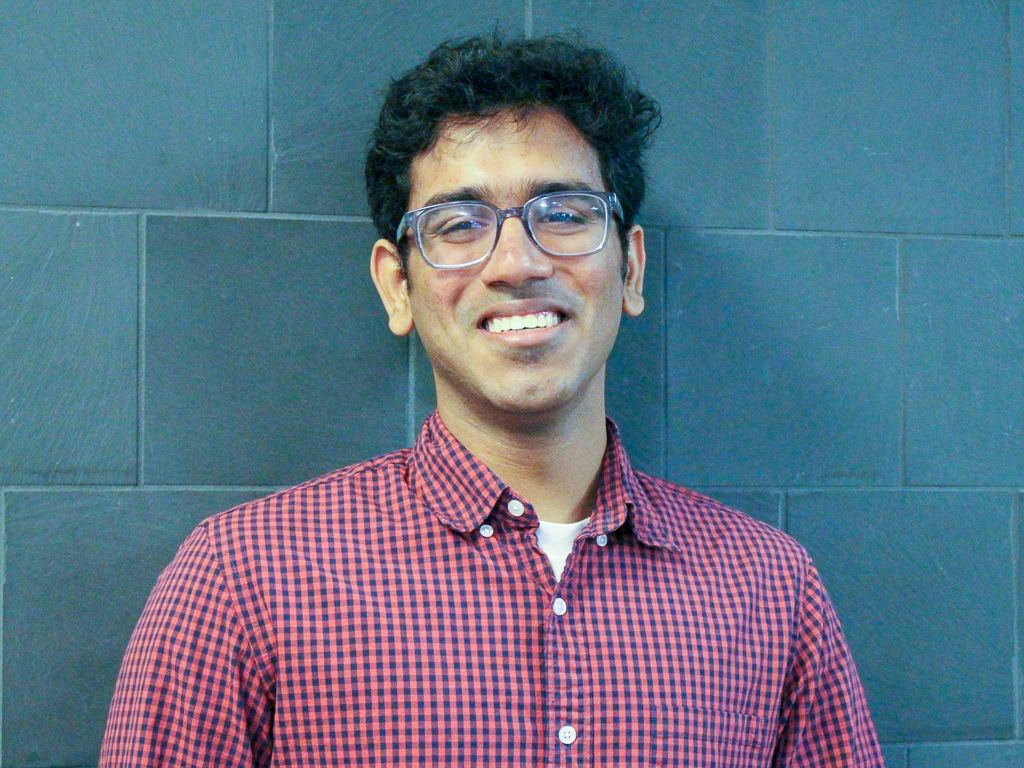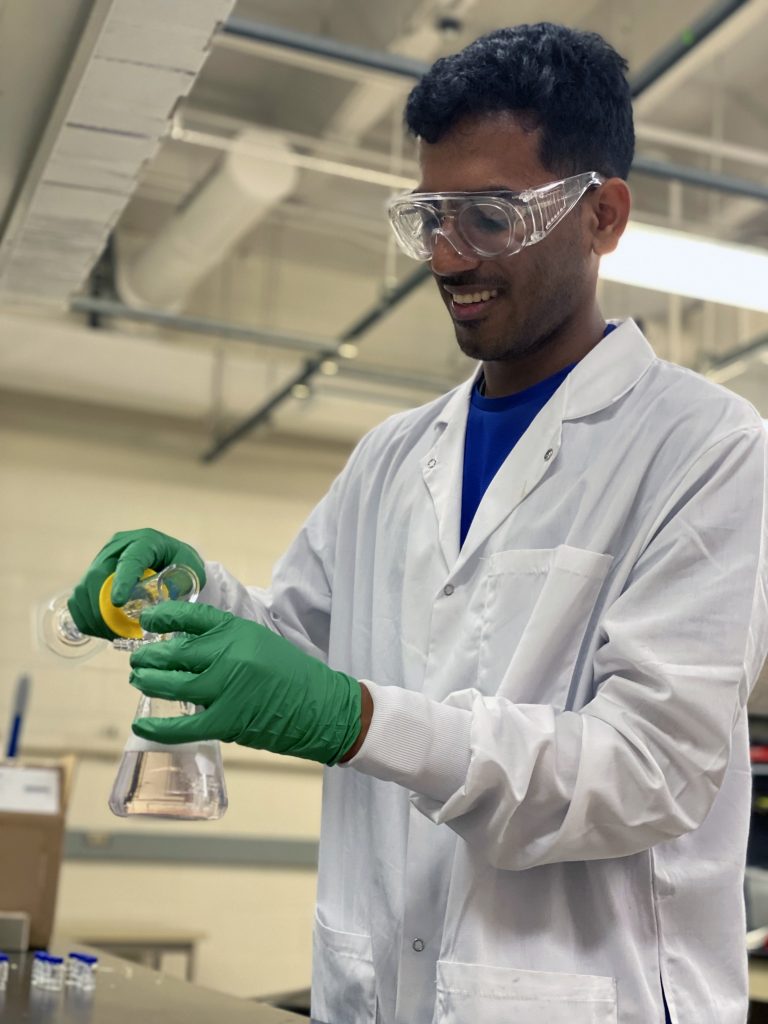Grad student Dhananjay Dileep is working to make the chemical recycling of plastics more commercially viable
Author: cbecomm
Author: cbecomm
Since he was an undergraduate student at Nirma University in India, Dhananjay Dileep has been drawn to research on sustainability as a way to help the world.
“I gravitated toward green research early on because, as a chemical engineer, I feel we have a moral responsibility to give back to society. Chemical engineering helps produce many wonderful products we use daily, but those products become waste. I am proud that my work is helping to engineer change in how we deal with that waste,” says Dileep, a Ph.D. student in chemical and biological engineering.

Dileep’s passion for engineering change led him to pursue an internship with Eric Cochran, Mary Jane Skogen Hagenson and Randy L. Hagenson Professorship in Chemical and Biological Engineering.
Through his internship with Cochran, Dileep was introduced to the world of polymers and Iowa State University (ISU).
“As an undergrad with little knowledge of polymers, I was allowed to work on them, to practice and engage in science with amazing supportive colleagues. There are not many other places where you get that privilege. And to have come so far as to receive an award to share my polymer research with others means a lot,” Dileep said.
After his summer internship in 2019, Dileep joined as a Master’s student in ISU’s Department of Chemical and Biological Engineering in January 2020 as part of the International Concurrent Program. Due to the nature of the program, Dileep was able to finish his bachelor’s degree at Nirma University while pursuing a Master’s in Engineering at ISU.
Now a Ph.D. student at ISU, Dileep still works with Cochran and is researching how to make Polyethylene terephthalate, commonly referred to as PET, plastics more appealing and less energy-intensive to recyclable through chemical recycling.
PET and the limits of recycling.
PET is used to make many single-use plastic products, like containers for soda, water, oil, soap, peanut butter, and more. It is even used to make polyester clothing. Typically, plastics like this are recycled mechanically by melting and reusing them.
However, as Dileep explains, the process has its limitations, “Only about 30 percent of PET plastics get recycled in the US. And this is partly because plastic is hard to recycle, but another big issue is that traditional recycling results in an inferior plastic. As a result, manufacturers can be hesitant to use second-generation plastics. Chemical recycling, though, offers a solution to this problem.”
The promise of chemical recycling

Plastics are made up of a series of chemical units called monomers. Chemical recycling lets scientists take apart or depolymerize the units making up plastic and use them to make something else without losing quality.
“Essentially, it is a bit like using chemistry to take apart a giant chain of Legos. On a chemical level, you end up with the same starting blocks, and you can then reassemble them into a new polymer,” says Dileep.
Making chemical recycling affordable
Dileep’s research focuses on developing creative and less energy-intensified ways to deploy mild depolymerization strategies to reuse hard-to-recycle plastics like PET.
Dileep hopes to make the process more commercially viable by focusing on reducing the cost of chemical recycling.
“Lowering costs is a big first step in getting companies to adopt the process. And we want to make chemical recycling as attractive as possible because it can be used to make plastics equal in quality to first-generation plastics. Being able to do this on a mass scale should increase the recycling rate through commercial demand,” says Dileep.
Presenting his work
Dileep’s research earned him the POLY Graduate Student Travel Award from the Division of Polymer Chemistry, Inc to present his work at the American Chemical Society (ACS) 2022 conference in San Diego.
Dileep used the travel award to interact and share his poster “Leveraging the “Butterfly Effect to Achieve Chemical Recyclability for Recalcitrant Polyethylene Terephthalate” on his research with the trailblazers in the field of polymer science.
“I was pleased to get the grant, but being there, getting to present was even better. It was energizing to see the interest in my work and the positive implications it could have on society,” says Dileep.
Dileep’s recent award, however, is just one of many of his achievements. Throughout his academic career, Dileep has presented at several international conferences, been a lead author on the paper “Plastic glut down a microbial gut,” engaged in numerous teaching and mentoring opportunities, and collaborated on multiple research projects at ISU and abroad.
Recently Dileep achieved being one of the top four vote-getters in the recent Department of Chemical and Biological Engineering’s Perfect Pitch research presentation competition. And with each success, Dileep moves closer to his goal of helping make the world more sustainable.
